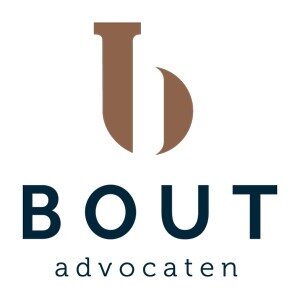Best Disability Lawyers in Groningen
Share your needs with us, get contacted by law firms.
Free. Takes 2 min.
List of the best lawyers in Groningen, Netherlands
About Disability Law in Groningen, Netherlands:
Disability law in Groningen, Netherlands is designed to protect the rights of individuals with disabilities and ensure their equal participation and inclusion in society. The law aims to eliminate discrimination and provide necessary accommodations and support for people with disabilities.
Why You May Need a Lawyer:
There are several situations where you may require legal help regarding disability law in Groningen, Netherlands. Some common scenarios include:
- Denial of disability benefits or pension
- Employment discrimination based on disability
- Inadequate accessibility in public spaces
- Disputes with insurance companies over coverage
- Navigating the legal procedures for disability claims
Local Laws Overview:
In Groningen, Netherlands, the following key aspects of local laws are particularly relevant to disability:
- The Dutch Equal Treatment Act prohibits disability discrimination in various areas, including employment, education, and access to goods and services.
- The Welfare Support Act (Wet Maatschappelijke Ondersteuning) aims to provide support and assistance to individuals with disabilities to promote their independence and social participation.
- The Social Security System provides disability benefits and pensions to eligible individuals.
Frequently Asked Questions:
1. Can I be fired from my job due to my disability?
No, it is illegal to terminate employment solely based on disability. Employers are required to provide reasonable accommodations to enable individuals with disabilities to perform their job duties.
2. How can I apply for disability benefits in Groningen?
To apply for disability benefits, you need to contact the local Social Security Office (Sociale Verzekeringsbank). They will guide you through the application process, including medical assessments and documentation requirements.
3. What should I do if I encounter accessibility issues in public places?
If you face accessibility issues, you can file a complaint with the Groningen Municipal Authority. They are responsible for ensuring public spaces comply with accessibility standards and can take appropriate action to address the issue.
4. Can I appeal if my disability benefits or pension is denied?
Yes, if your disability benefits or pension is denied, you have the right to appeal the decision. It is advisable to seek legal assistance to ensure you navigate the appeals process correctly and provide the necessary supporting documentation.
5. Are there any organizations in Groningen that provide assistance to individuals with disabilities?
Yes, there are several organizations that can provide support and guidance to individuals with disabilities in Groningen, including Groninger Forum, MEE Groningen, and the Dutch Association of Disabled Persons (CG-Raad).
Additional Resources:
For further information and assistance regarding disability law in Groningen, Netherlands, the following resources can be helpful:
- Groninger Forum - Provides information on disability rights and support services.
- MEE Groningen - Offers guidance and advocacy for individuals with disabilities and their families.
- Dutch Association of Disabled Persons (CG-Raad) - Represents the interests of people with disabilities and provides information on their rights and entitlements.
Next Steps:
If you require legal assistance in the field of disability in Groningen, Netherlands, it is recommended to:
- Document the details of your situation, including any relevant dates, conversations, and documents.
- Consult with a specialized disability lawyer who can provide personalized advice based on your circumstances.
- Gather any supporting evidence or documentation that may strengthen your case.
- Follow the legal procedures and timelines for filing complaints or appeals, if necessary.
- Consider reaching out to relevant organizations mentioned in the Additional Resources section for additional support.
Lawzana helps you find the best lawyers and law firms in Groningen through a curated and pre-screened list of qualified legal professionals. Our platform offers rankings and detailed profiles of attorneys and law firms, allowing you to compare based on practice areas, including Disability, experience, and client feedback.
Each profile includes a description of the firm's areas of practice, client reviews, team members and partners, year of establishment, spoken languages, office locations, contact information, social media presence, and any published articles or resources. Most firms on our platform speak English and are experienced in both local and international legal matters.
Get a quote from top-rated law firms in Groningen, Netherlands — quickly, securely, and without unnecessary hassle.
Disclaimer:
The information provided on this page is for general informational purposes only and does not constitute legal advice. While we strive to ensure the accuracy and relevance of the content, legal information may change over time, and interpretations of the law can vary. You should always consult with a qualified legal professional for advice specific to your situation.
We disclaim all liability for actions taken or not taken based on the content of this page. If you believe any information is incorrect or outdated, please contact us, and we will review and update it where appropriate.








